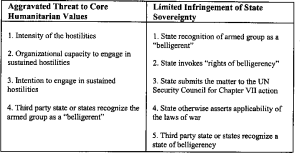Contents
Judge Rejects Trump’s Attempts to Quash Trans Military Ban Lawsuit and to Dissolve Preliminary Injunction
Judge Rejects Trump’s Attempts to Quash Trans Military Ban Lawsuit and to Dissolve Preliminary Injunction
District Judge Colleen Kollar-Kotelly denies Trump administration motions to dismiss Doe v. Trump and to dissolve the preliminary injunction preventing the ban from going into effect
WASHINGTON, D.C.—U.S. District Court Judge Colleen Kollar-Kotelly today denied the Trump administration’s motion to dismiss NCLR and GLAD’s case Doe v. Trump, the first lawsuit filed challenging the Trump-Pence transgender military ban and the first to secure a preliminary injunction stopping the ban from going into effect while the case is heard by the court. Judge Kollar-Kotelly also denied the Trump administration’s motion to dissolve the preliminary injunction, which would have jeopardized the careers of nearly all of the thousands of currently serving transgender troops and allowed the Trump administration to begin implementing the ban. Judge Kollar-Kotelly has not yet ruled on plantiffs’ motion for summary judgment, which would resolve the case by issuing a final judgment declaring that the ban is unconstitutional and cannot be implemented.
In Judge Kollar-Kotelly’s order, she emphasized the importance of transgender military service with regard to military readiness, “It should not be forgotten that the United States military remains engaged in numerous armed conflicts throughout the world, and service members are still being injured and killed in those conflicts. The public interest and equities lie with allowing young men and women who are qualified and willing to serve our Nation to do so.” Judge Kollar-Kotelly’s also affirmed the transgender community’s capability to serve, noting, “the Mattis Implementation Plan still accomplishes an extremely broad prohibition on military service by transgender individuals that appears to be divorced from any transgender individual’s actual ability to serve. In the absence of the challenged policy, transgender individuals are subject to all of the same standards and requirements for accession and retention as any other service member. The Mattis Implementation Plan establishes a special additional exclusionary rule that precludes individuals who would otherwise satisfy the demanding standards applicable to all service members simply because they have certain traits that are associated with being transgender.”
“The Trump administration’s arguments to dismiss our lawsuit and move forward with the trans military ban are full of sweeping generalizations and false stereotypes about transgender people. It’s clear Judge Kollar-Kotelly isn’t buying it—and neither should anyone else,” said Jennifer Levi, GLBTQ Legal Advocates & Defenders (GLAD) Transgender Rights Project Director. “Anyone who meets the standards should be able to serve. There is no reason to subject transgender people to unconstitutional and discriminatory treatment, unlike the way the military treats any other group.”
“No other military policy excludes a class of persons from serving because of who they are rather than whether they can do the job,” said Shannon Minter, National Center for Lesbian Rights (NCLR) Legal Director. “Today’s ruling strongly rejects the Trump administration’s attempt to evade the injunction and move forward with their destructive plan to exclude qualified transgender individuals from military service. By the military’s own count, thousands of transgender servicemembers are currently serving—one of our Doe plaintiffs has served multiple tours of duty abroad, two in Iraq. This ban is not only unconstitutional, it takes aim at dedicated servicemembers and erodes military readiness. We will keep fighting for those who fight for our country.”
BACKGROUND
June 30, 2016: The United States Department of Defense (DOD) adopted a policy permitting transgender people to serve in the military based on a nearly two year DOD review determining that there was no valid reason to exclude qualified personnel from military service simply because they are transgender.
July 26, 2017: President Trump tweeted that “the United States Government will not accept or allow transgender individuals to serve in any capacity in the U.S. Military.”
August 9, 2017: NCLR and GLAD filed Doe v. Trump, the first lawsuit filed to stop the ban, challenging its constitutionality and requesting that the court issue a nationwide preliminary injunction to stop it from taking effect while the case is being heard in court.
August 25, 2017: President Trump issued a memorandum ordering Secretary of Defense James Mattis to submit “a plan for implementing” the ban by February 21, 2018. Secretary Mattis delivered this (the “Mattis Plan” and panel report) to President Trump on February 22, 2018.
October 30, 2017: The United States District Court for the District of Columbia ruled that Doe v. Trump plaintiffs had established a likelihood of success on their claim that President Trump’s ban violates equal protection, that plaintiffs would be irreparably harmed without a preliminary injunction to stop the ban, and that the public interest and balance of hardships weighed in favor of granting injunctive relief and temporarily halting the ban while the case is heard by the court.
March 23, 2018: President Trump accepts the “Mattis Plan” and issues a memorandum in which he “revoked” his August 25 Memorandum.
April 20, 2018: Defendants file a motion to dissolve the October 30 nationwide preliminary injunction enjoining the transgender military ban issued by the U.S. District Court for the District of Columbia; a motion to dismiss Plaintiffs’ Second Amended Complaint; and a Motion for Summary Judgment.
May 11, 2018: Plaintiffs file their cross-motion for summary judgment, as well as motions in opposition to Defendant’s motions to dissolve the injunction and dismiss Plaintiffs’ complaint. NCLR and GLAD have been at the center of the legal fight challenging the Trump-Pence transgender military ban since filing Doe v. Trump, the first of four cases filed against the ban, on August 9, 2017.




